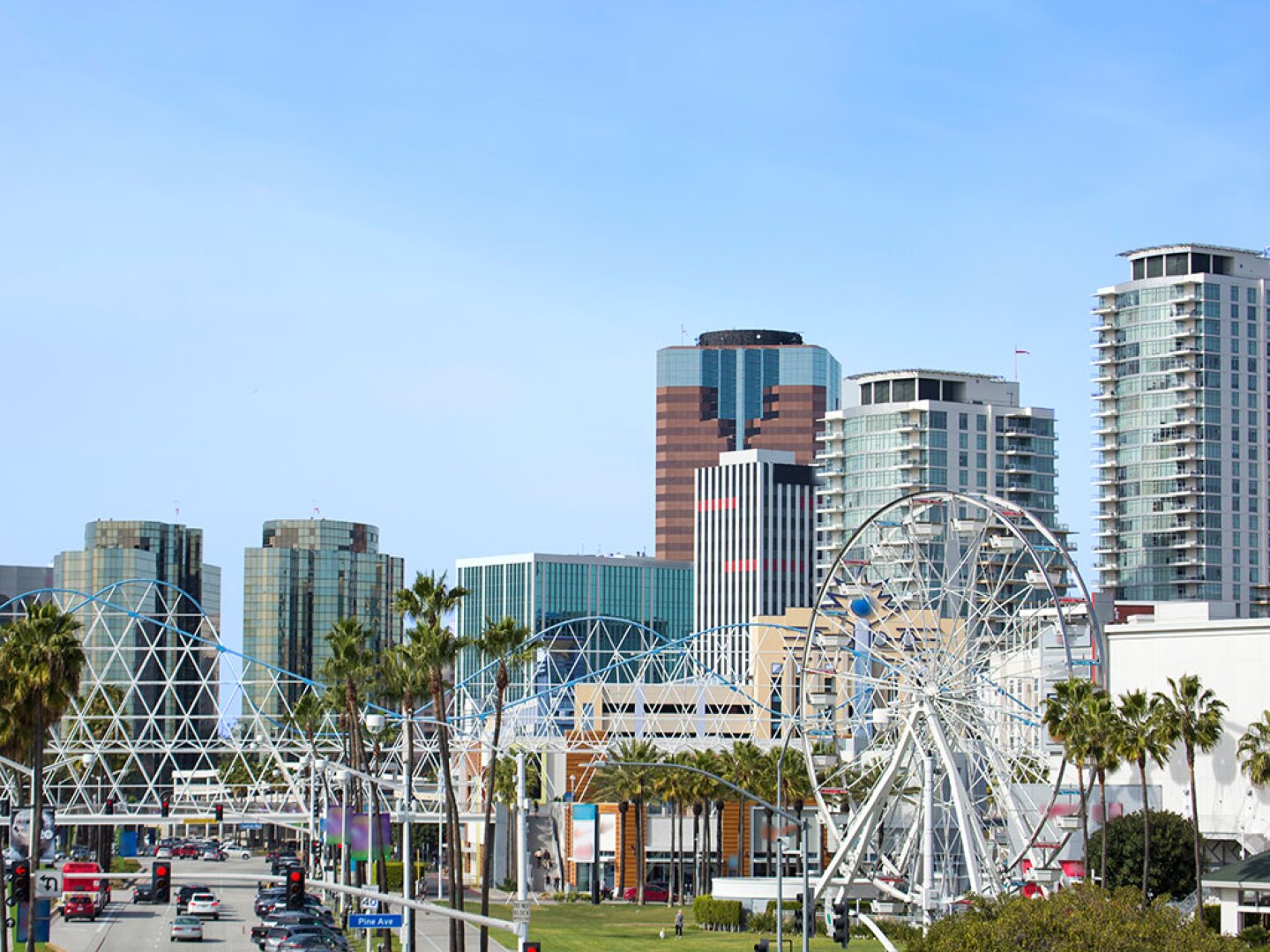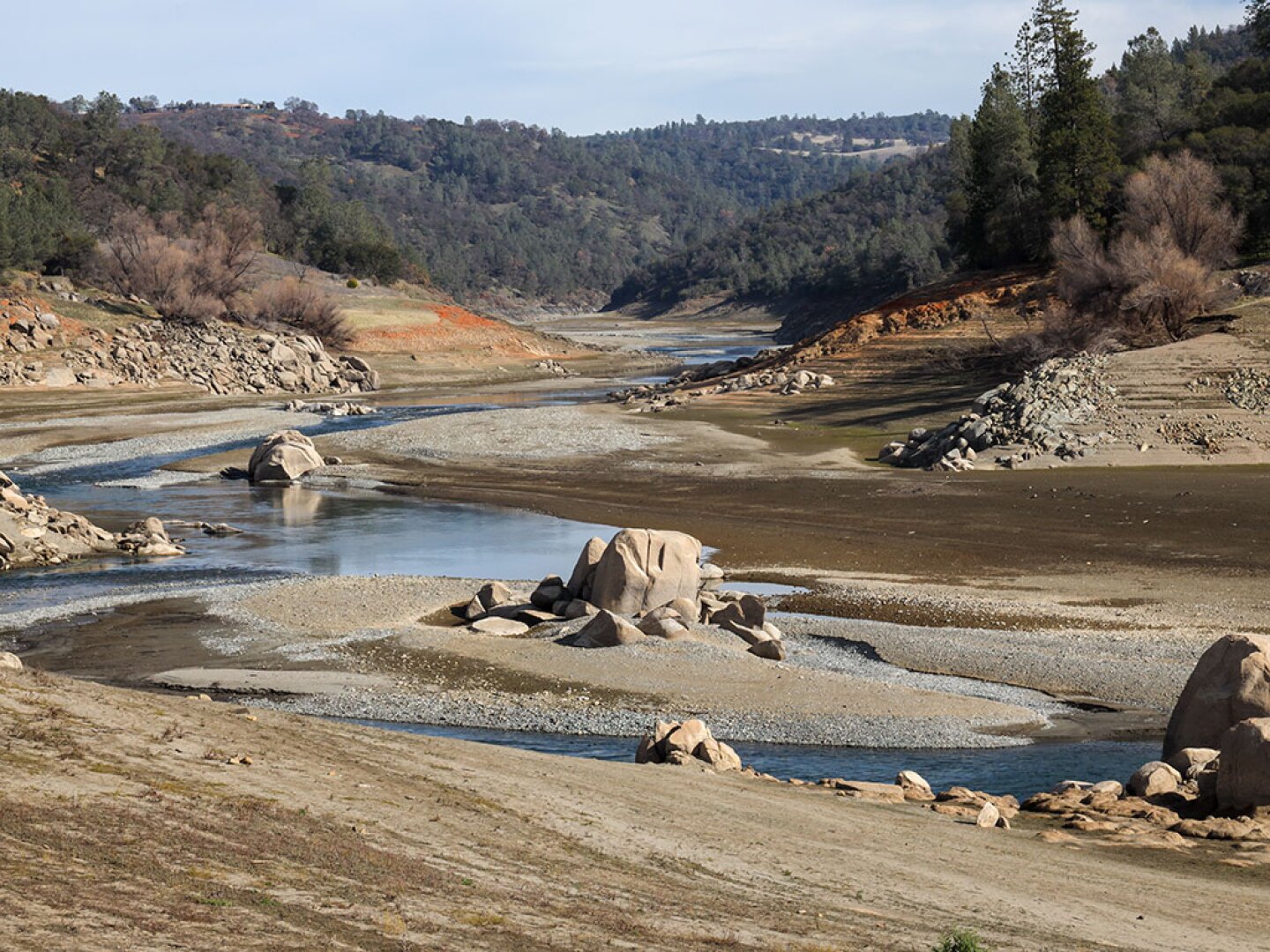ULI is proud to announce partnerships with seven public agencies in California and Nevada that are working to advance resilience in urban planning and real estate development in their communities. The organizations are partnering with their local ULI District Councils as part of a larger effort aimed at connecting public sector leaders to ULI’s technical assistance, networks, and other resources and helping cities prepare for the impacts of climate change and other environmental vulnerabilities.
The California-Nevada Technical Assistance Leadership Exchange program will uplift innovative solutions to regional land use and resilience issues through collaboration between governments, public sector leaders, and the real estate industry. A key goal of the program is to build a regional network of leaders in a part of the country that is experiencing an increasing number of natural disasters and weather-related stressors every year. This program builds on the success of other District Council cohort programs, like the Resilient Land Use Cohort and the Net Zero Imperative, which have provided technical assistance to cities across the globe.
The program is made possible through a generous gift from longtime ULI member and Governor of the ULI Foundation, Randall Lewis. A special provision in Lewis’ historic $10 million gift to ULI set aside funds for District Council projects advancing sustainable and resilient land use in California and Nevada. Randall Lewis is an Executive Vice President and Principal of the Lewis Management Corp., a southern California-based developer of master plan communities, shopping centers, apartment complexes, and industrial and residential projects in California and Nevada.
“As someone with deep ties in California and Nevada, I’m proud to support this program and the District Councils that are partnering with local governments and others to solve resilience challenges in the region,” Lewis said. “The program’s sustained local engagement, technical assistance, and opportunities for cross-community exchange and learning will provide powerful avenues for impact.”
The selected agencies include the City of Long Beach, the City of Needles, the City of San Diego, the City of San José, Nevada State University, the City of Sacramento and Sacramento County. The City of Sacramento and Sacramento County submitted a joint application for the program and will be partnering together on their project focused on heat resilience.
“The City and County are proud to participate in ULI’s California-Nevada Technical Assistance Leadership Exchange,” says Joelle Inman, Principal Planner at Sacramento County. “We formed this partnership because although we are two distinct jurisdictions, we know that extreme heat and its impacts do not know jurisdictional boundaries. Our shared challenges require shared strategies.”
As part of the exchange, the participating communities will each host a ULI technical assistance panel (TAP) to address a local resilience challenge and receive expert advice around potential strategies and solutions. During the TAP, a panel of eight to ten volunteer ULI members will tour the community, interview stakeholders, and put forward a set of recommendations for addressing the land use issue identified by the agency.
The TAPs will explore a range of topics related to climate change and other environmental vulnerabilities, such as extreme heat, drought, and seismic resilience, along with the associated economic, social, and environmental impacts.
We look forward to working with leading experts who can provide us with the tools necessary to advance innovative, cross jurisdictional solutions to make our communities more resilient to extreme heat.
Over the last decade, climate-driven hazards and other environmental stressors have resulted in tens of billions in economic losses, drastic environmental damage, and hundreds of deaths, displacement, and insurance issues in California and Nevada. As communities navigate this new reality, there is an urgent need for innovative leadership at all levels and creative partnerships between the public and private sectors. By bringing together leaders across the two states, the program will foster dialogue, communication, and the exchange of best practices to ensure that individual communities as well as the broader region are better prepared for the impacts of climate change.
“The City of Needles is already feeling the impacts of climate change, from more frequent extreme heat events to increased strain on our infrastructure,” shared Irene Romero, City Planner with the City of Needles. Needles is a small city in California located about two hours south of Las Vegas. The city regularly experiences temperatures well over 100 degrees in the summer months. “Participating in this program and hosting the technical assistance panel gives us a unique opportunity to explore strategies tailored to our local challenges. This collaboration will help us strengthen our community’s resilience and plan for a more sustainable future.”
Each local team is composed of representatives from the selected agency along with ULI District Council staff, TAP panelists, and ULI members that help plan and execute the panel. In addition, representatives from participating agencies will have the opportunity to serve as panelists on TAPs in other communities. Through this exchange, the program hopes to create an open atmosphere of learning, trust, and honest communication as each team receives guidance and has the opportunity to offer feedback and advice to peers on similar land use challenges. ULI will convene the group regularly, both virtually and in-person, to share lessons learned and distill key takeaways. The goal is to help facilitate cross-regional relationships that can continue long after the program ends.
The program is expected to run through mid-2026, with most of the TAPs taking place from September of this year through the first quarter of 2026. Upon the program’s completion, ULI will publish a summary of findings and themes to help other public agencies looking to enhance resilience in their communities.
A description of each of the TAP projects is outlined below.
City of Long Beach (ULI Los Angeles)
In partnership with the City of Long Beach, ULI LA will propose ways to improve housing, mobility, and sustainability in Alamitos Beach, one of Long Beach’s oldest neighborhoods, located right next to downtown and the waterfront. Recommendations will accelerate housing production, improve transportation and parking options, and provide pathways for retrofitting existing structures for environmental hazards while not displacing existing residents.
Nevada State University (ULI Nevada)
ULI Nevada will offer recommendations to Nevada State University around the development plan for a 400-acre parcel adjacent to the school’s growing campus. With a once-in-a-generation opportunity to shape a university district from the ground up, the panel will provide strategic advice around phasing development, attracting private-sector partners, and aligning land use with water and climate resilience goals in the Southern Nevada context, with a goal to create a walkable, mixed-use district that fosters learning, health, innovation, and community pride.
City of Needles (ULI Orange County/Inland Empire)
ULI Orange County/Inland Empire is partnering with the City of Needles to identify strategic opportunities for sustainable growth and resilience. The project will focus on how Needles can grow by attracting businesses and housing, thrive by addressing community needs, and mitigate extreme heat, infrastructure challenges, and safety concerns. The team will deliver actionable recommendations to support the city’s long-term prosperity.
City of Sacramento & Sacramento County (ULI Sacramento)
ULI Sacramento is collaborating with the City of Sacramento Planning Division and Sacramento County Planning and Environmental Review to explore strategies for mitigating the urban heat island (UHI) related to new development. Sacramento faces extreme heat, flooding, and air quality impacts projected to increase over the next century, and this partnership will work to identify policies and strategies to ensure a more cohesive, equitable, and impactful approach to addressing UHI across the region.
City of San Diego (ULI San Diego-Tijuana)
In partnership with the City of San Diego, ULI San Diego-Tijuana will offer recommendations around catalyzing the development of “missing middle” housing types that integrate heat resilient design elements and sustainable building materials. The city aims to incorporate heat resilient design features into preapproved plans for duplexes, triplexes, bungalow courts, and other small-scale multiple home developments, making it easier and more financially feasible for developers to build these types of homes, and mitigating the urban heat island effect in vulnerable neighborhoods.
City of San José (ULI San Francisco)
The City of San José is leveraging the ULI TAP to identify best practices and funding strategies for implementing its forthcoming Climate Adaptation and Resilience Plan (CARP). The CARP project focuses on addressing site-specific vulnerabilities to flooding and extreme heat, strengthening equitable community engagement, and supporting long-term climate resilience for the city’s most at-risk populations.
The California-Nevada Technical Assistance Leadership Exchange and other programs like it are made possible through the generosity of ULI members—whose expertise, engagement, and philanthropic contributions help bring important community efforts like this to life.







